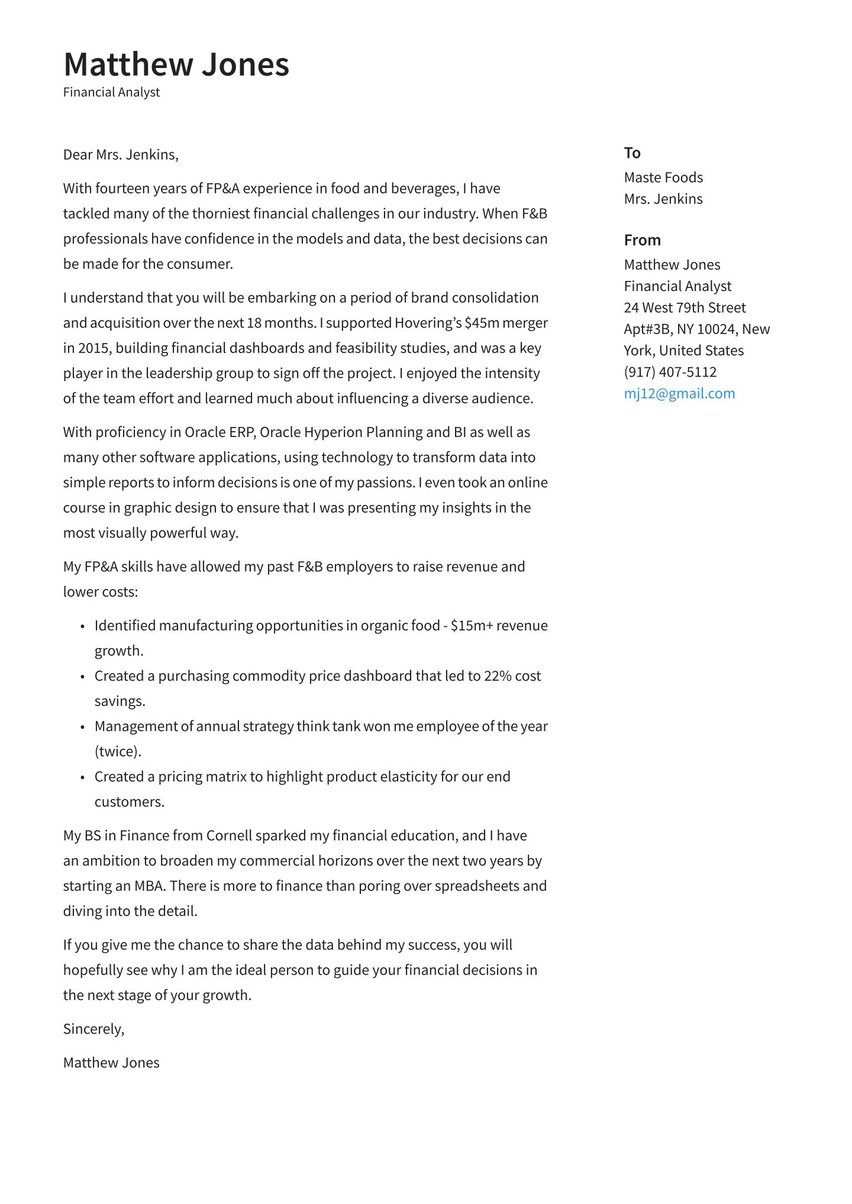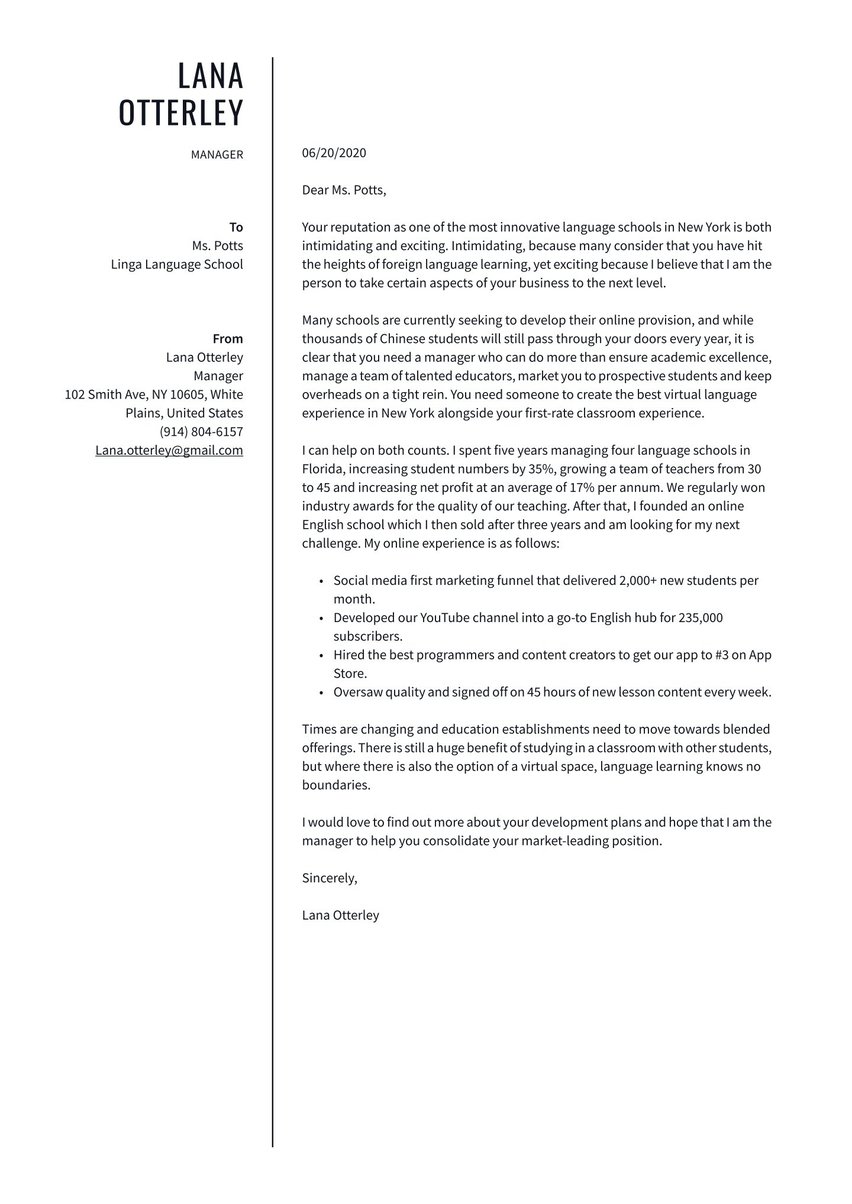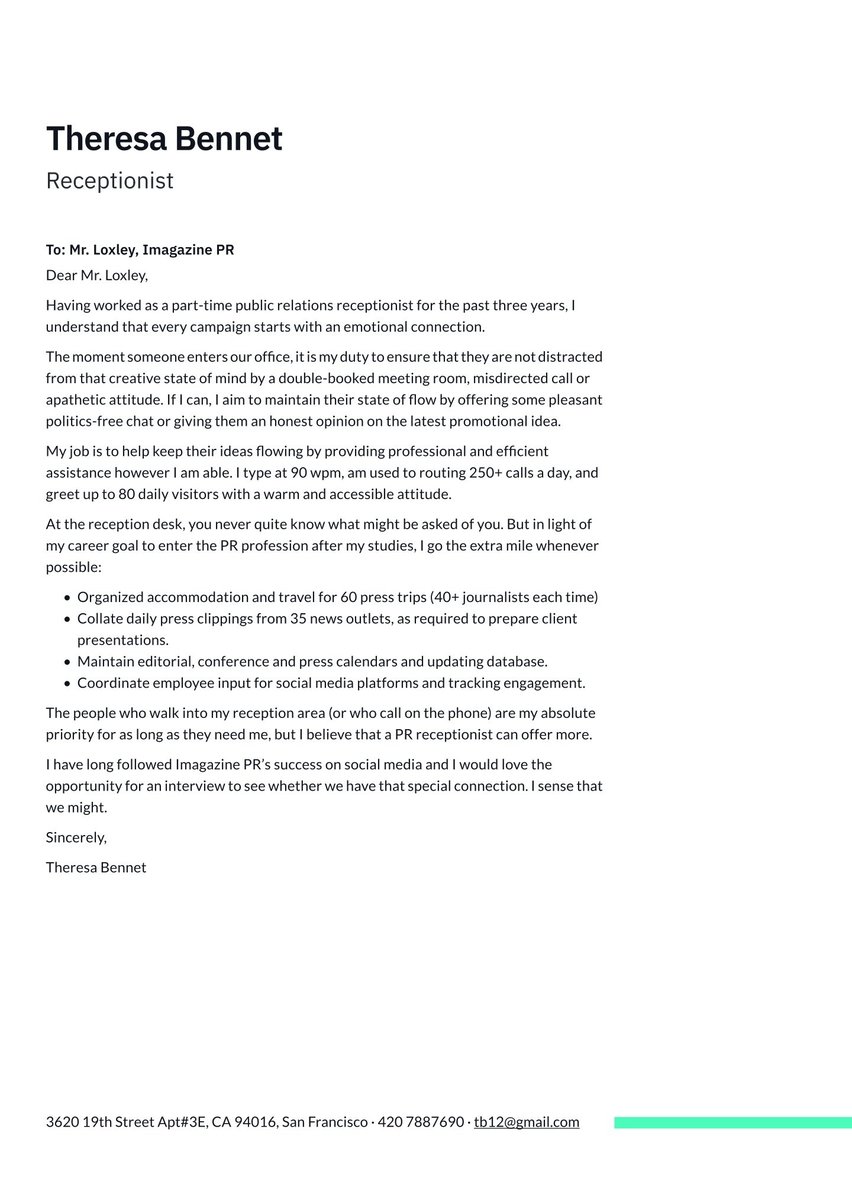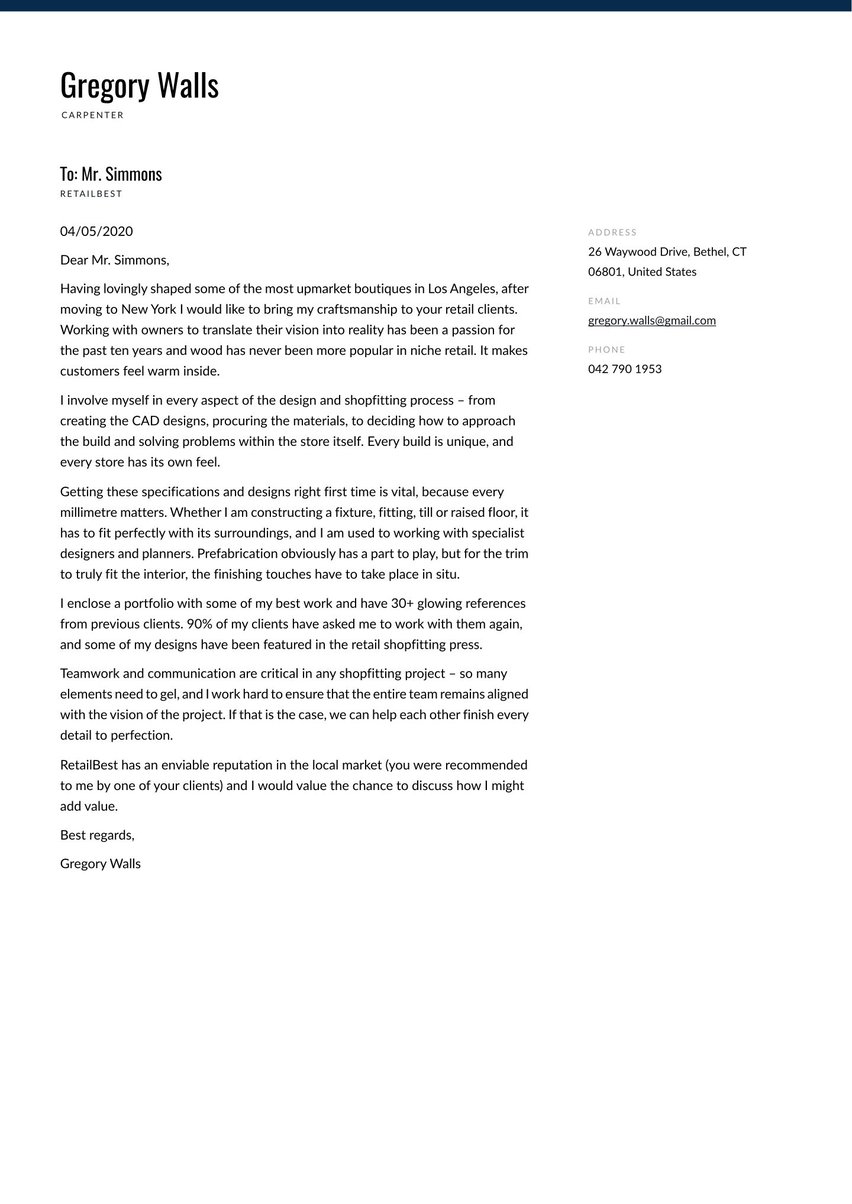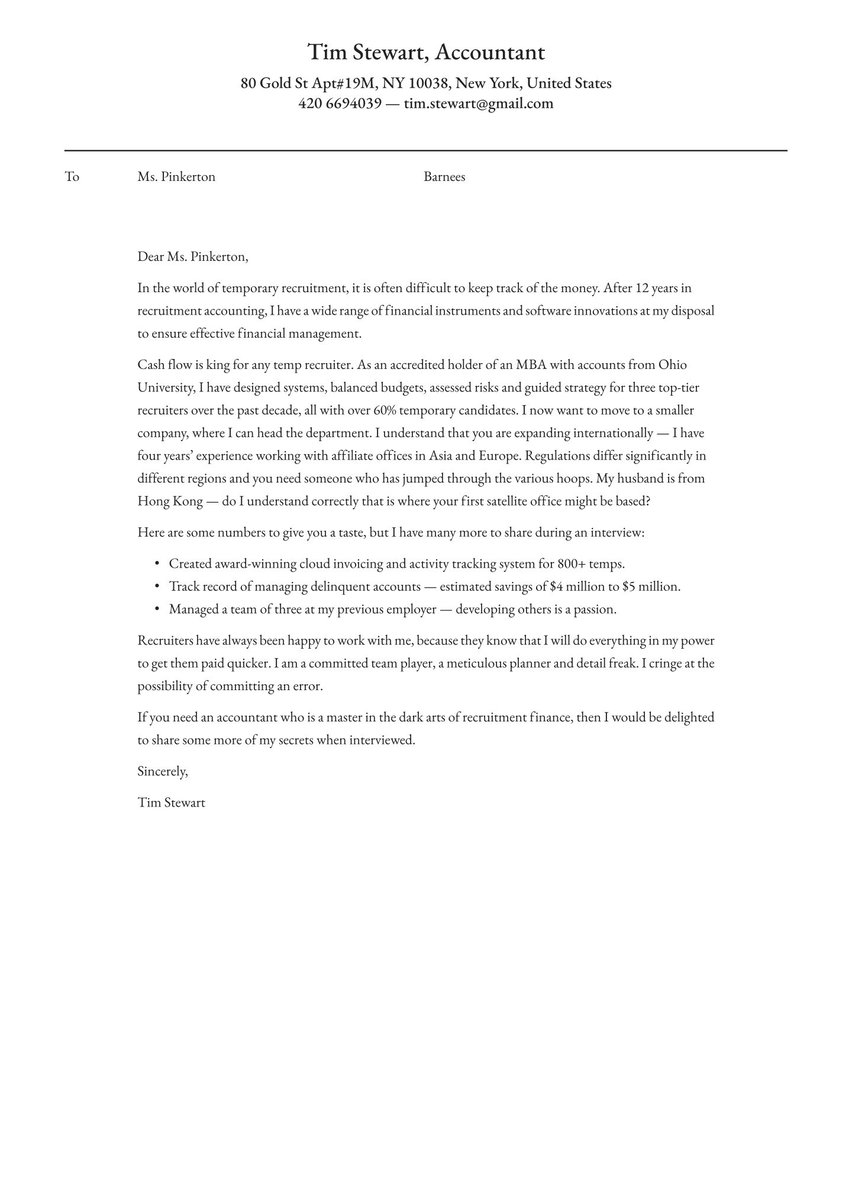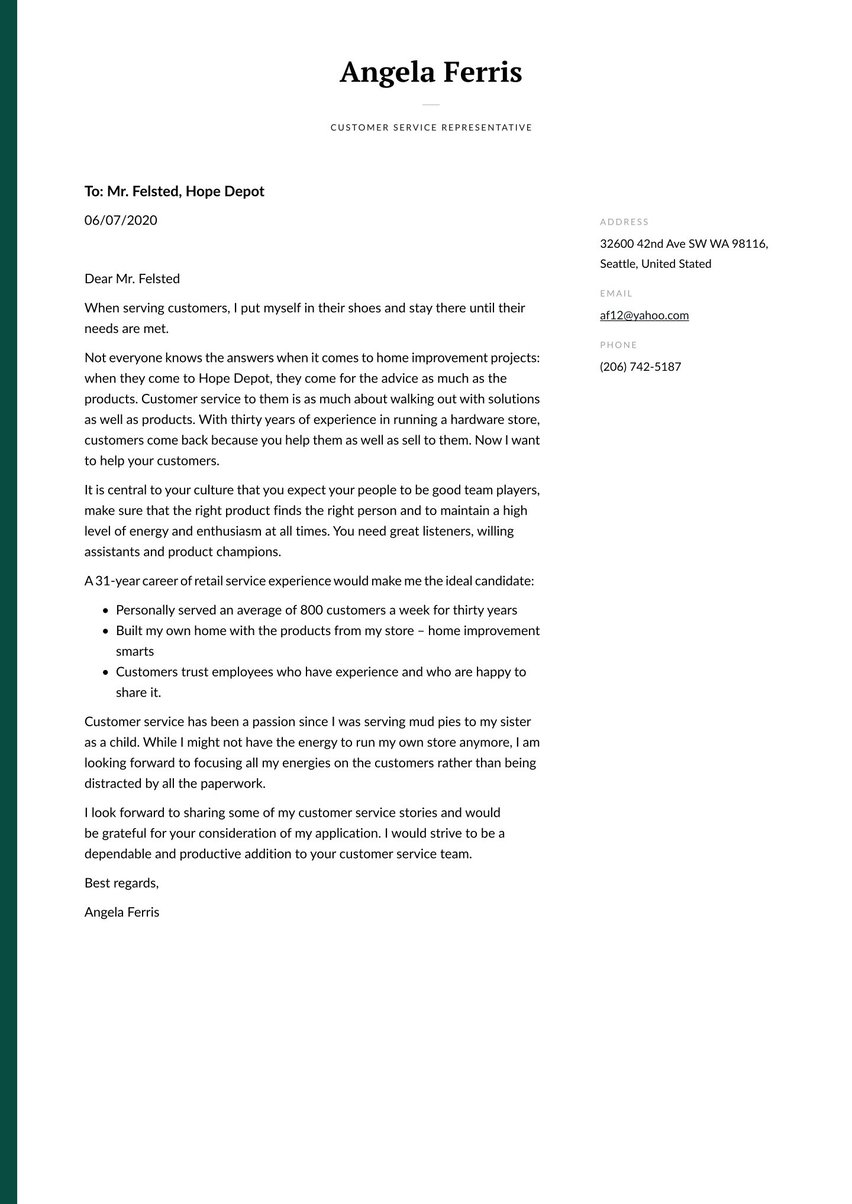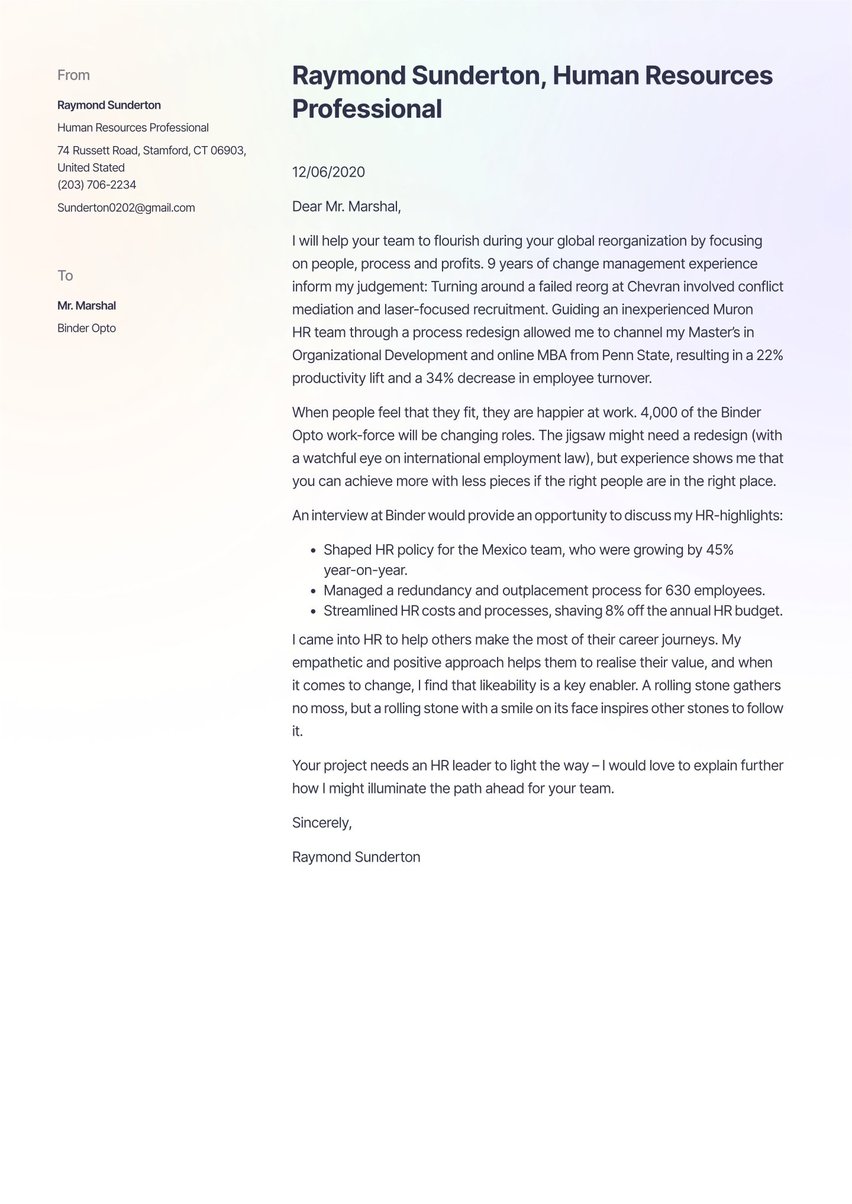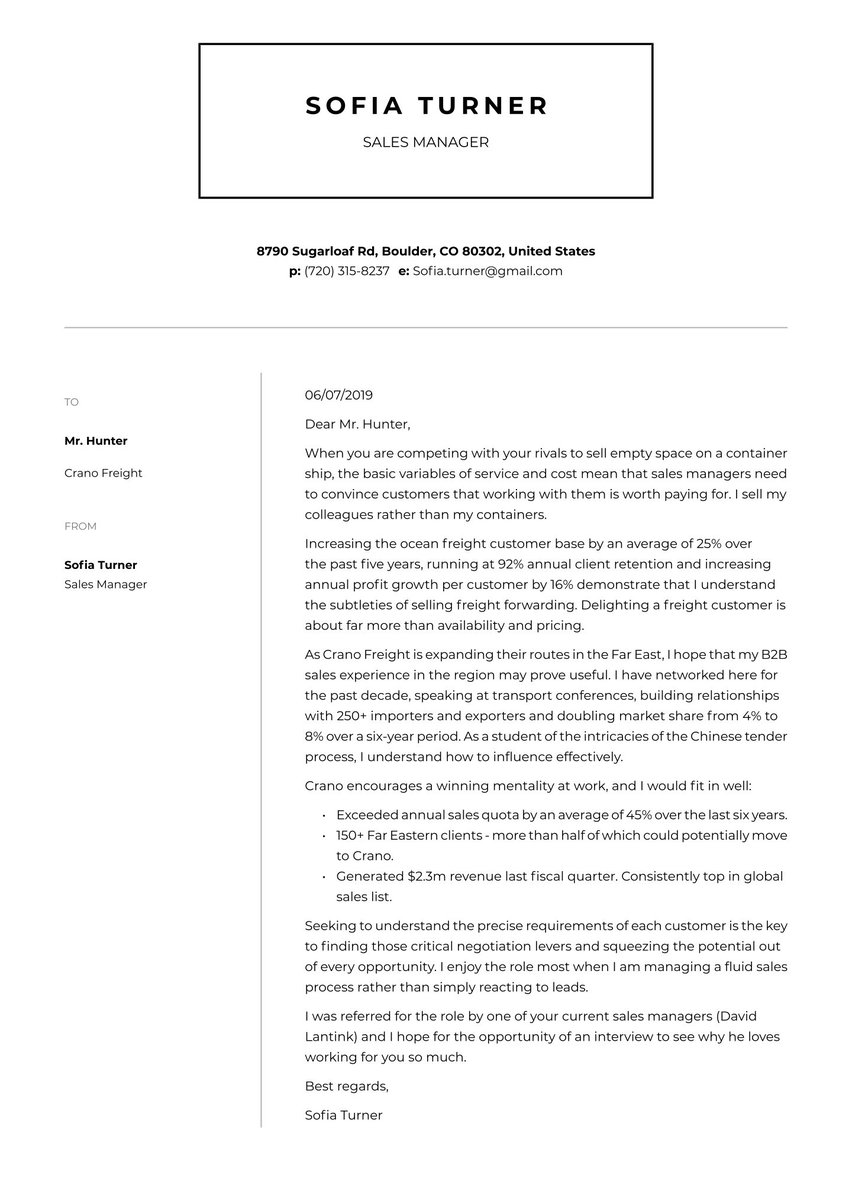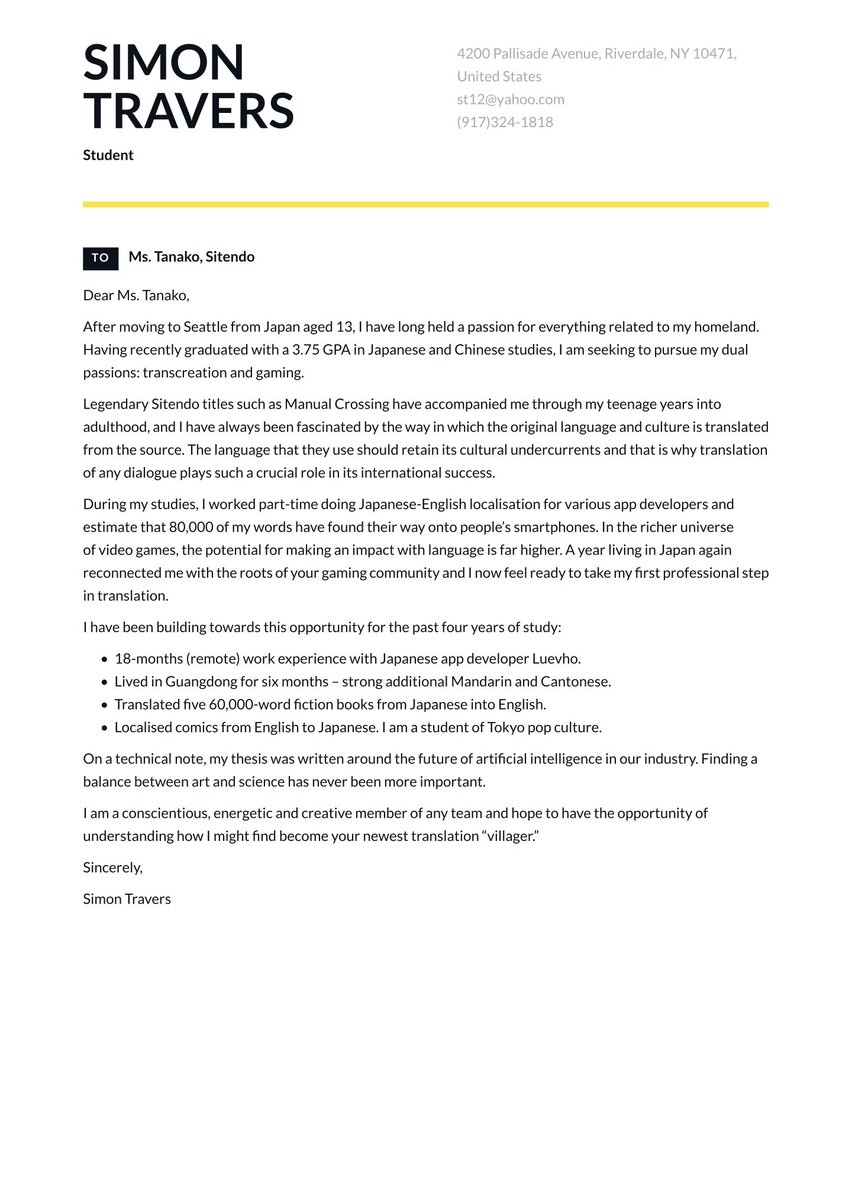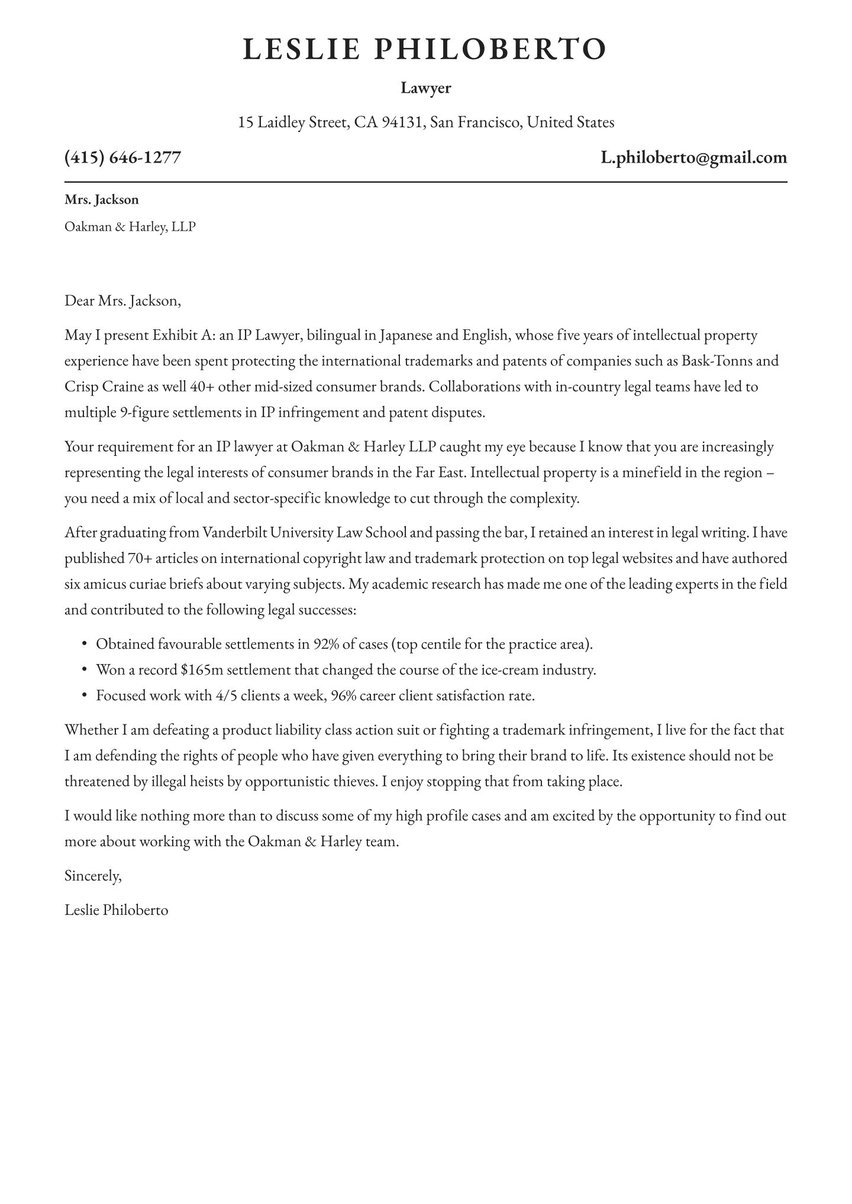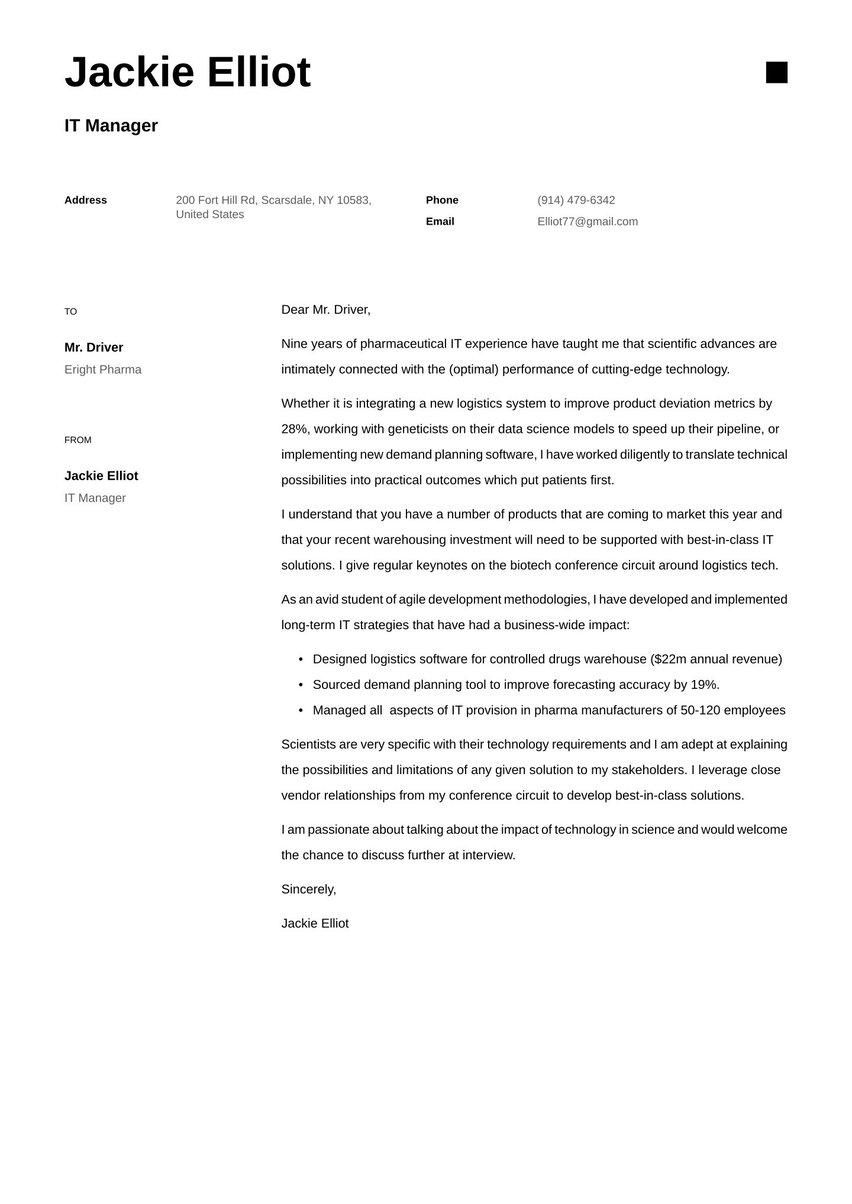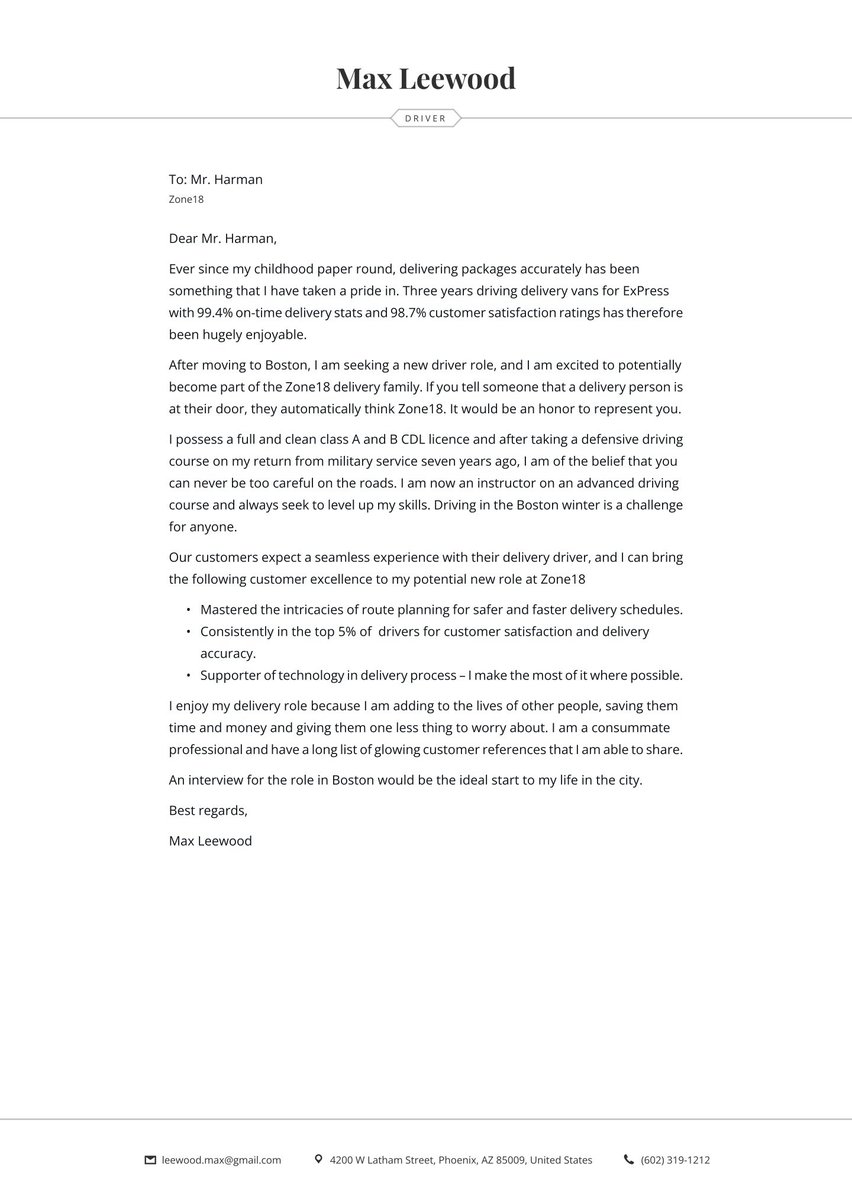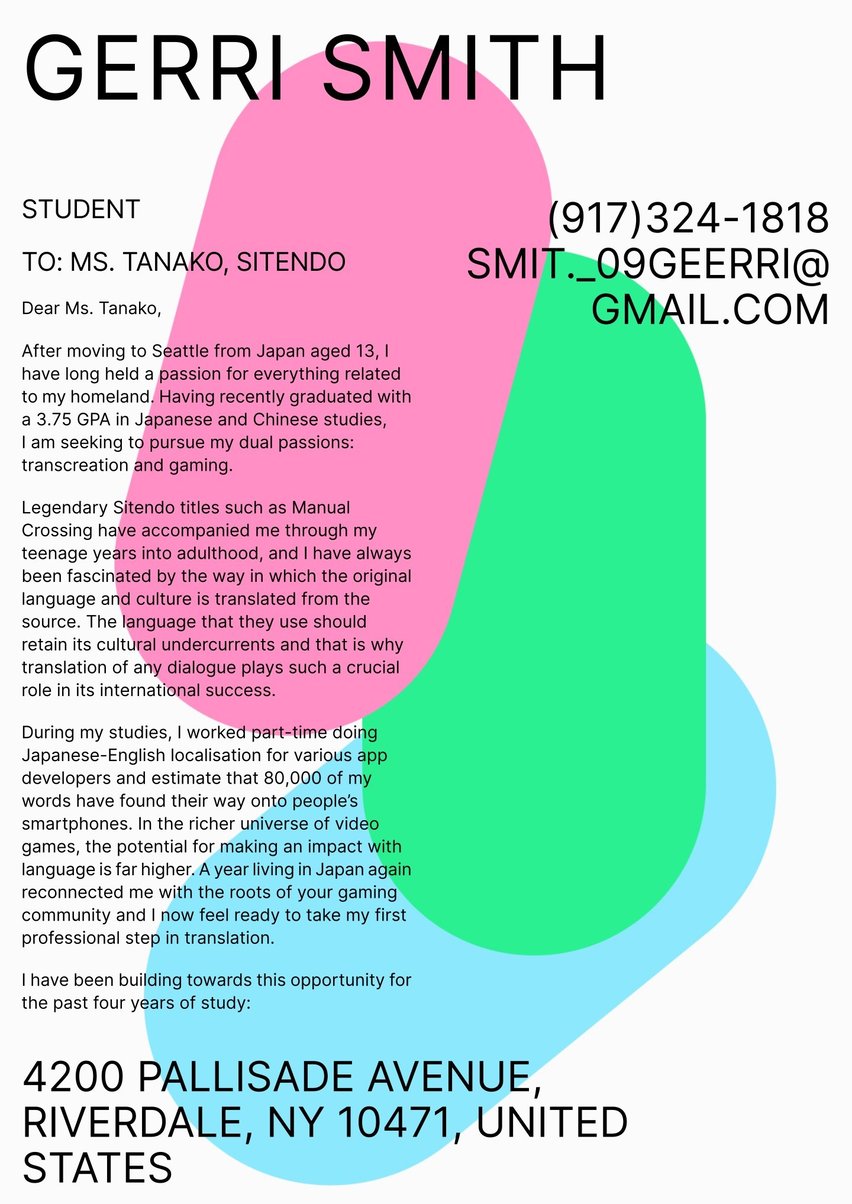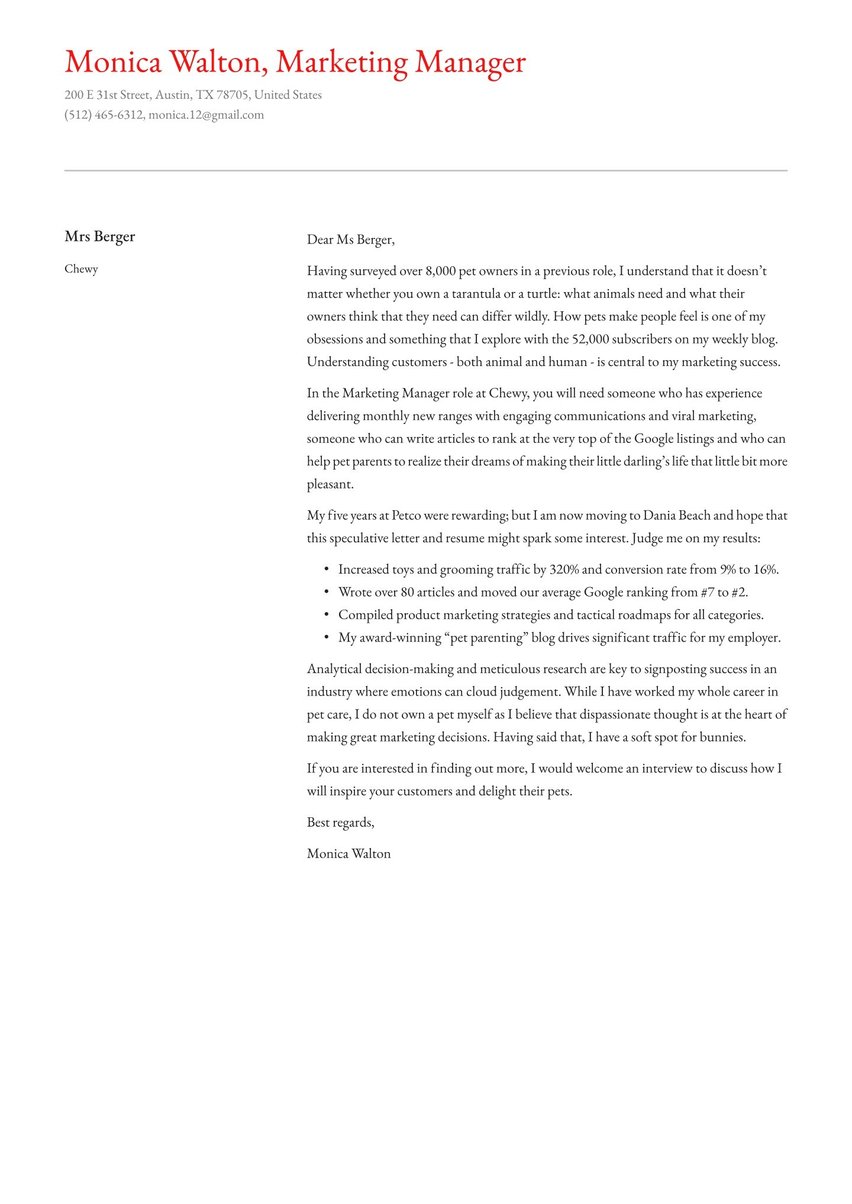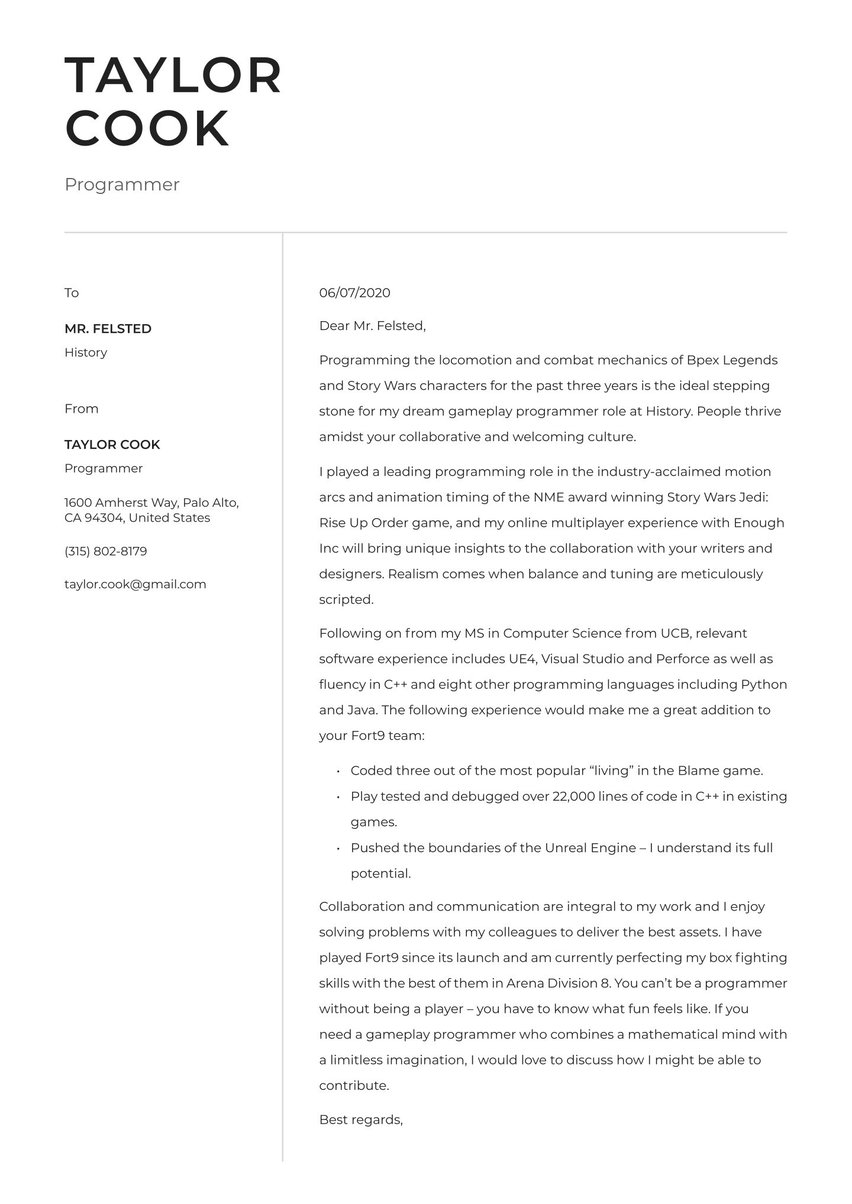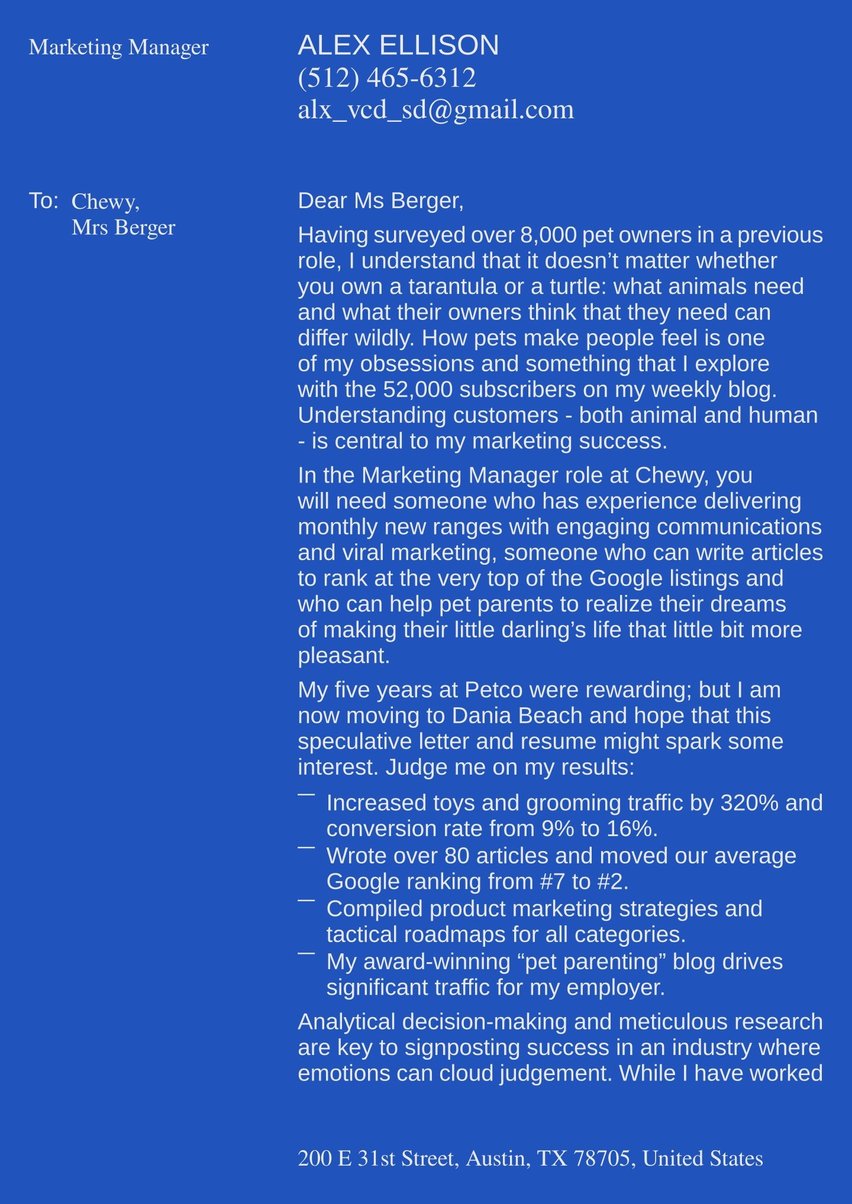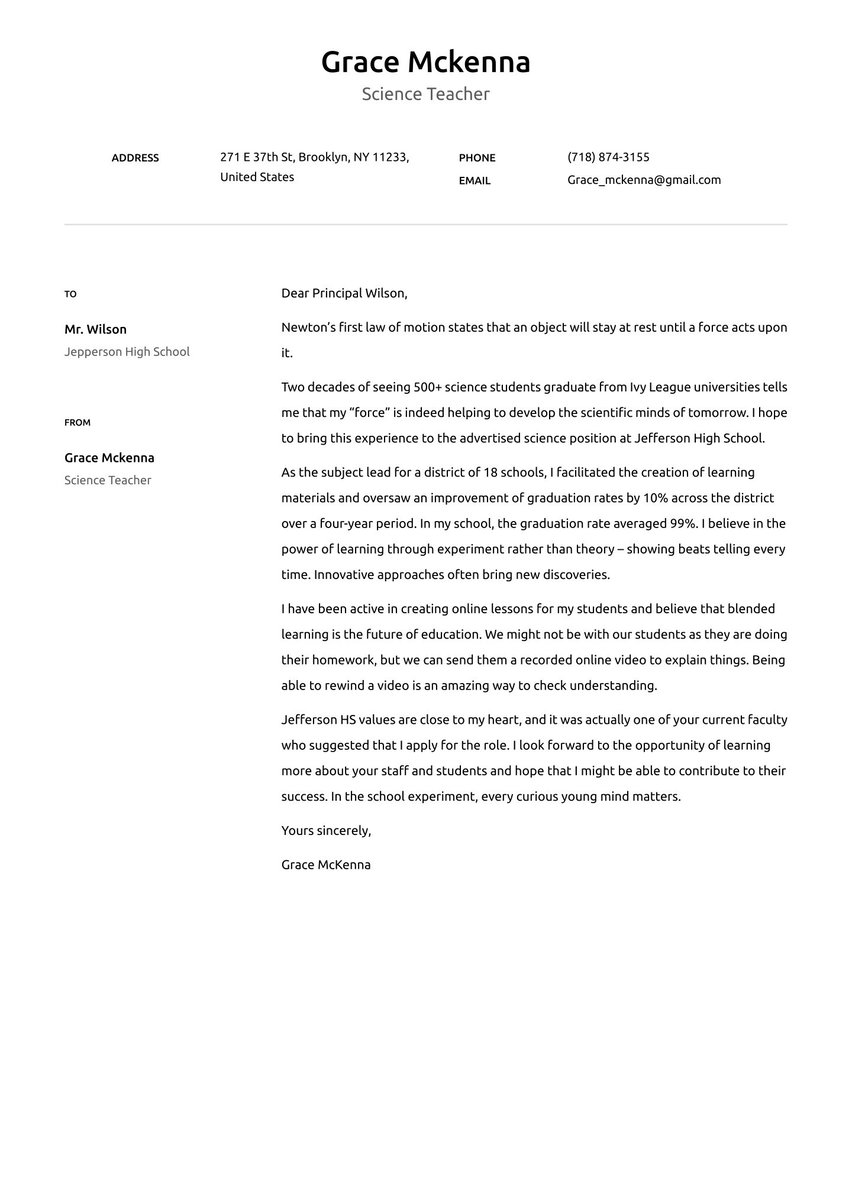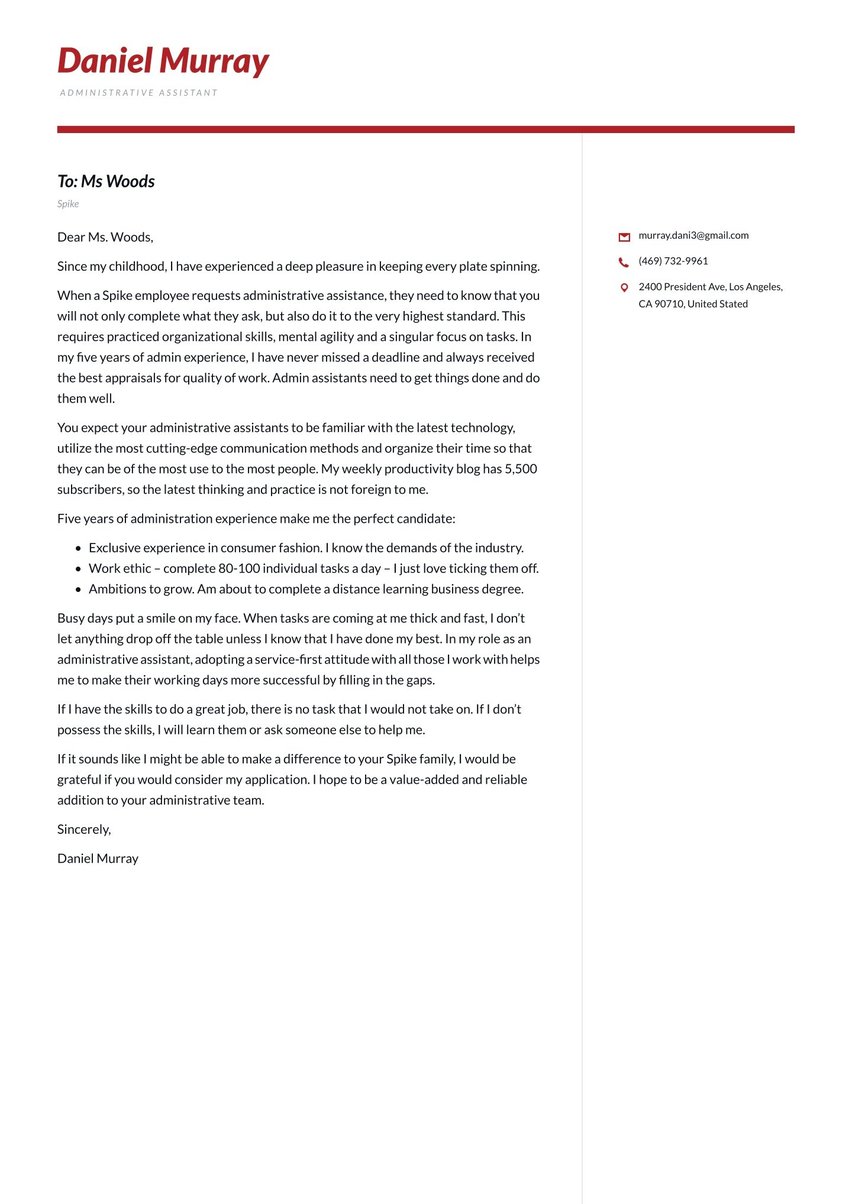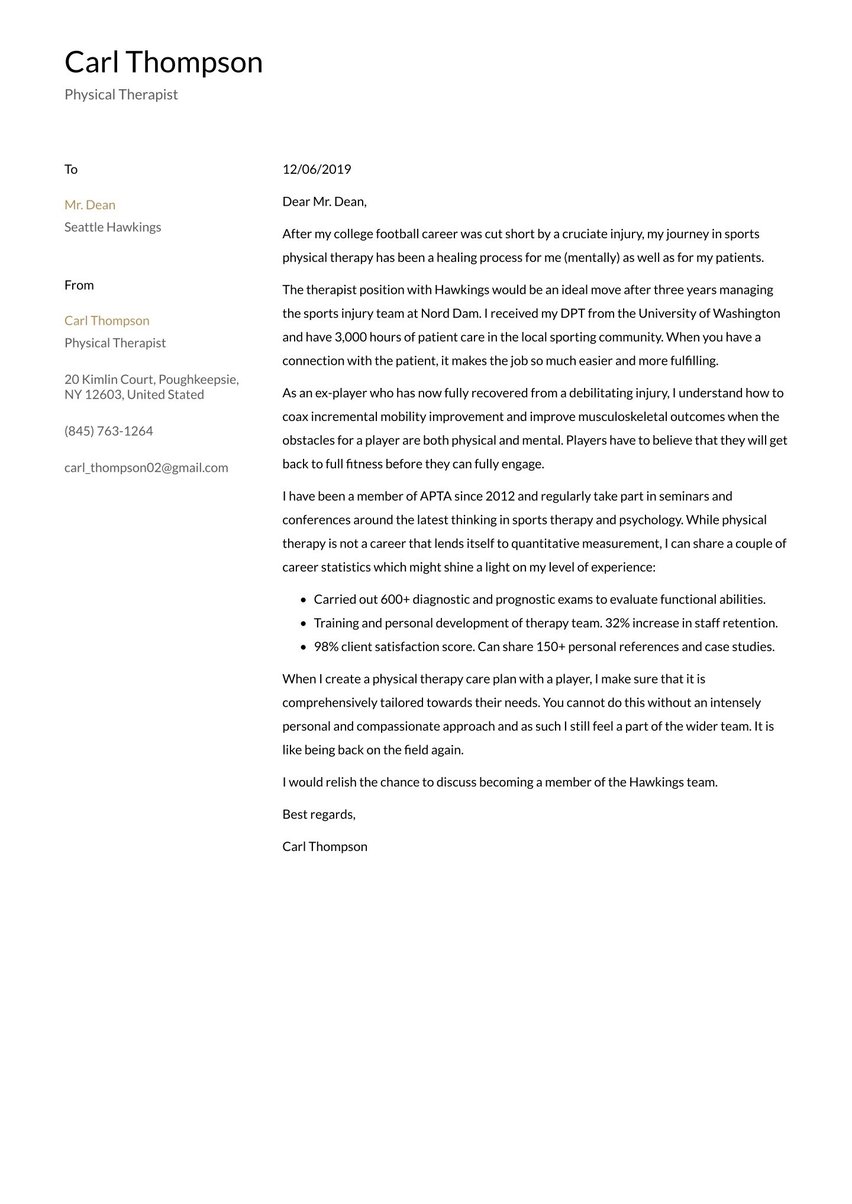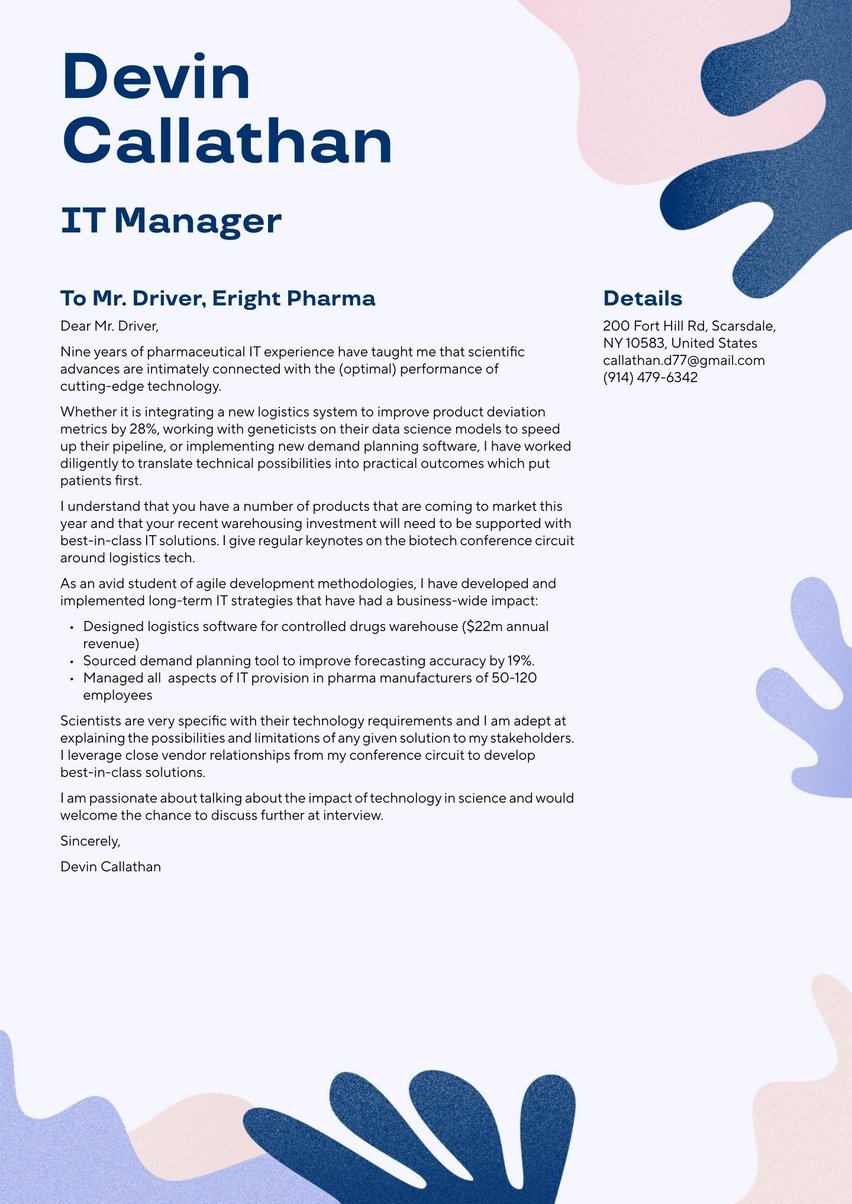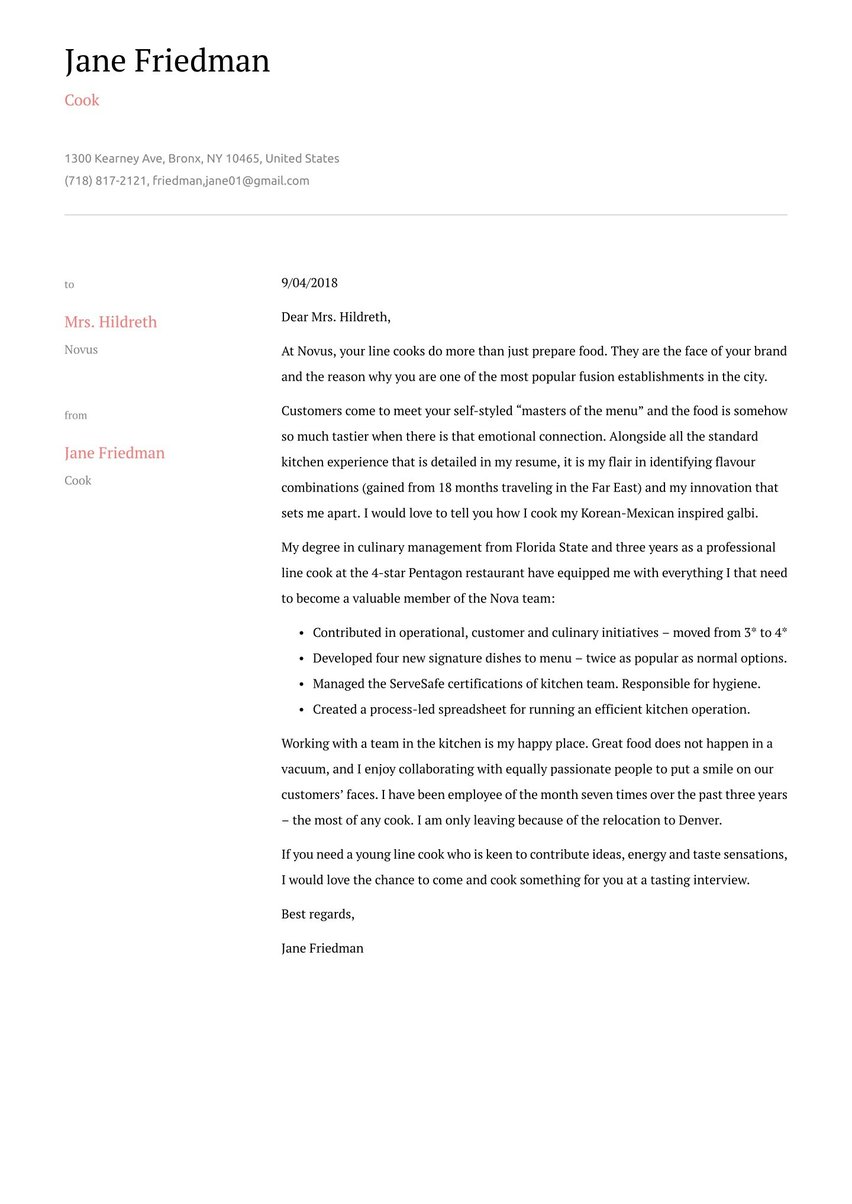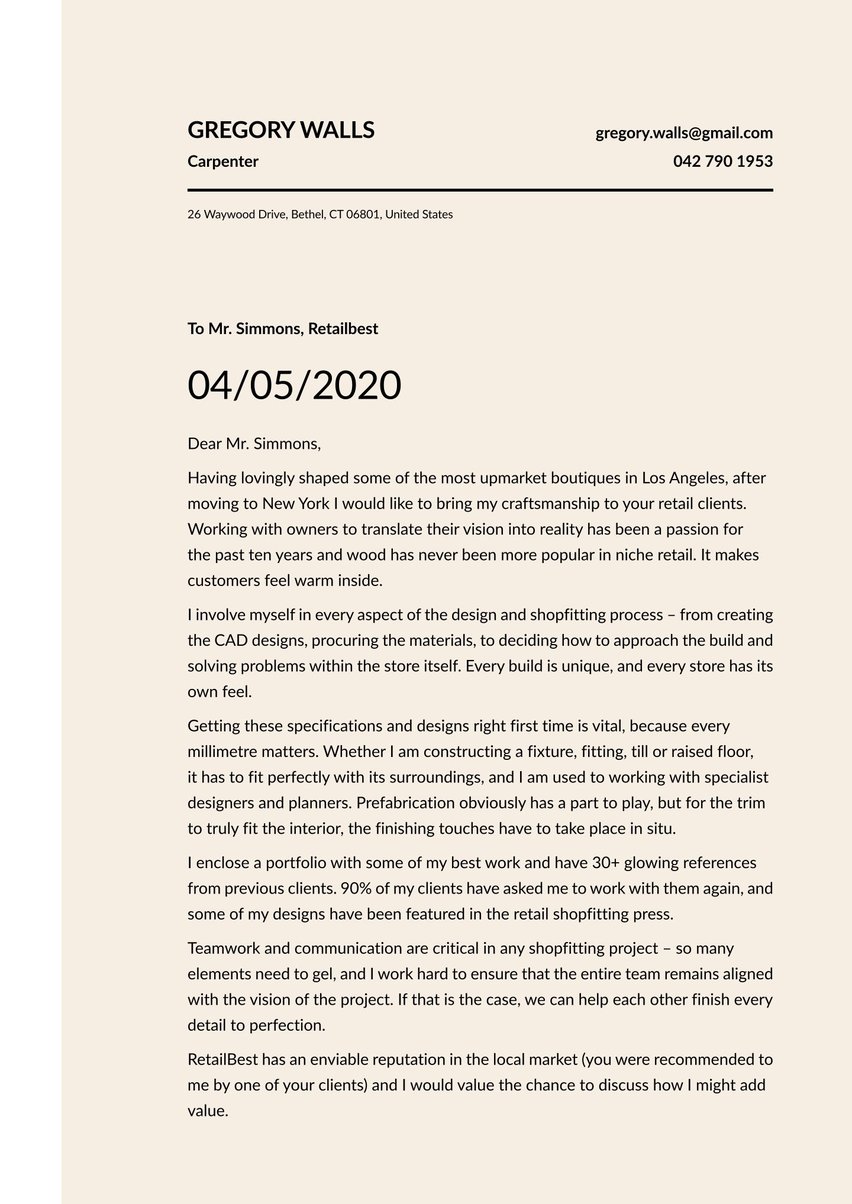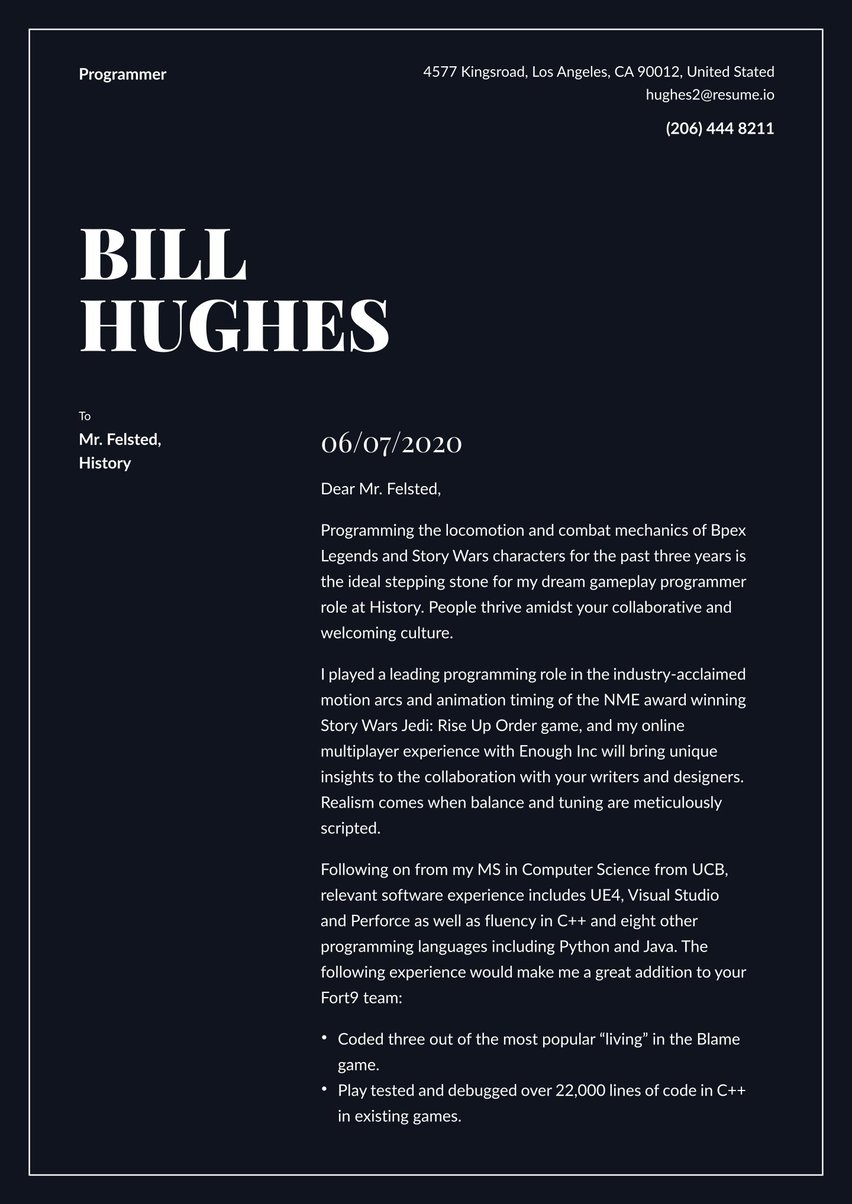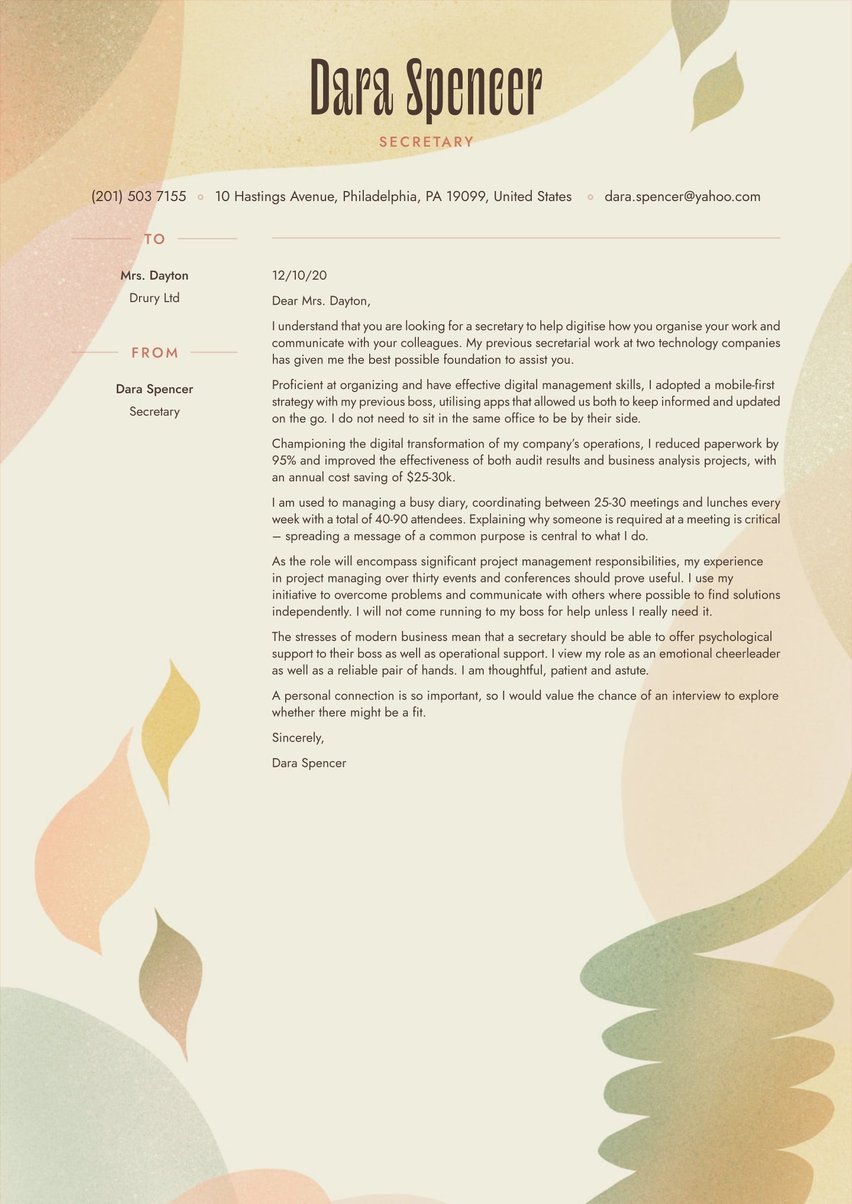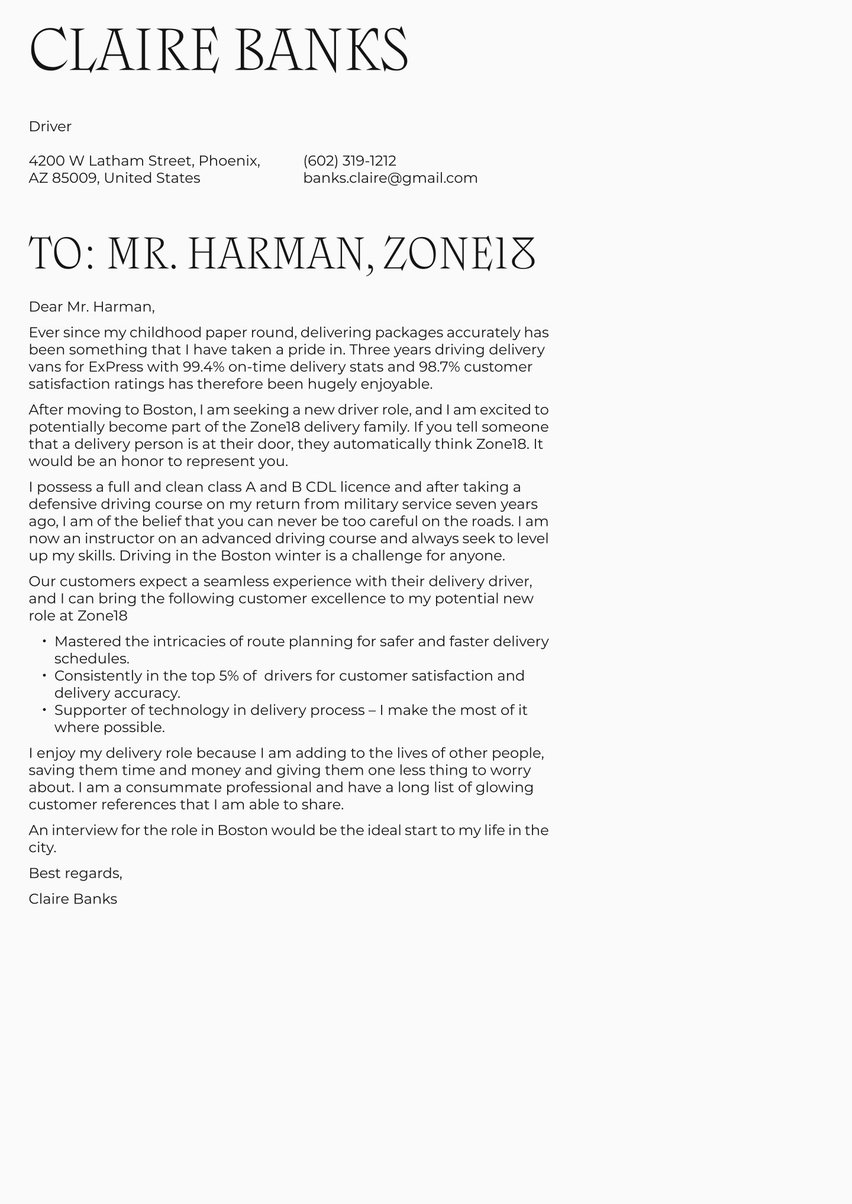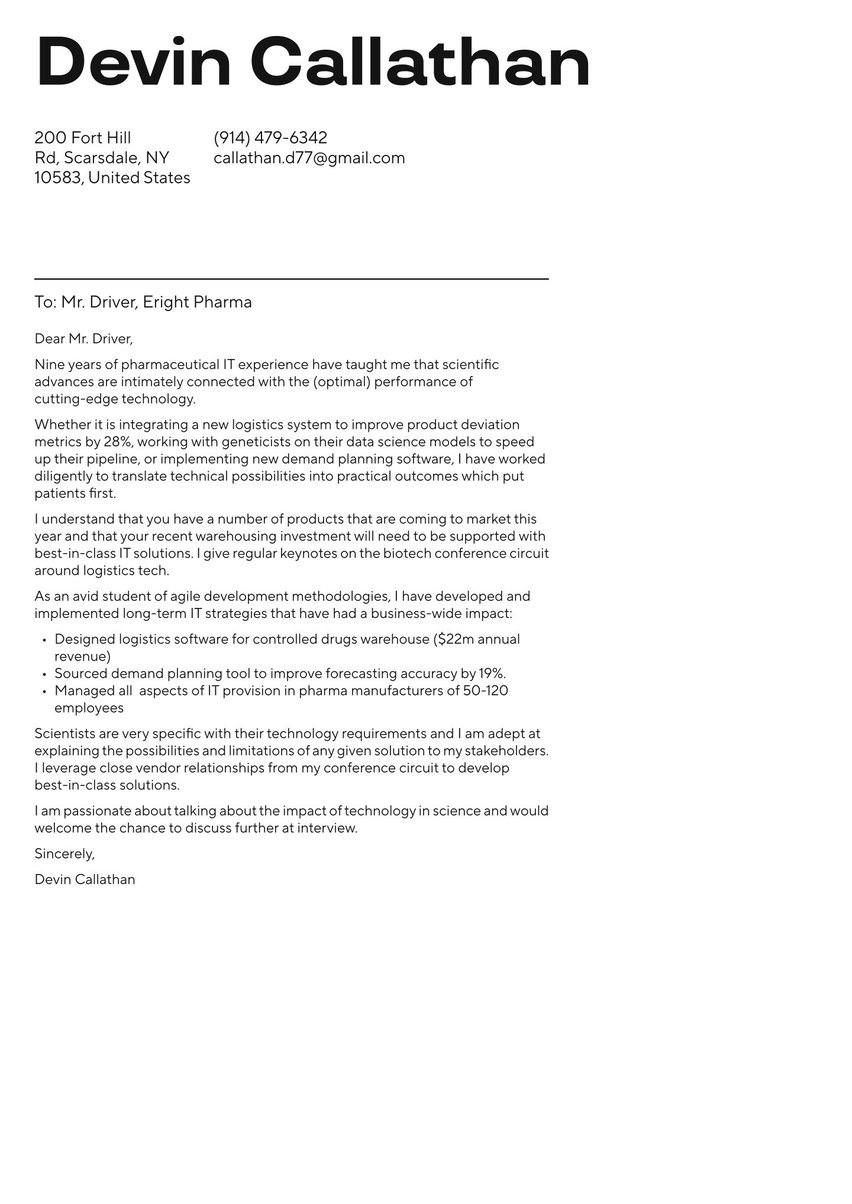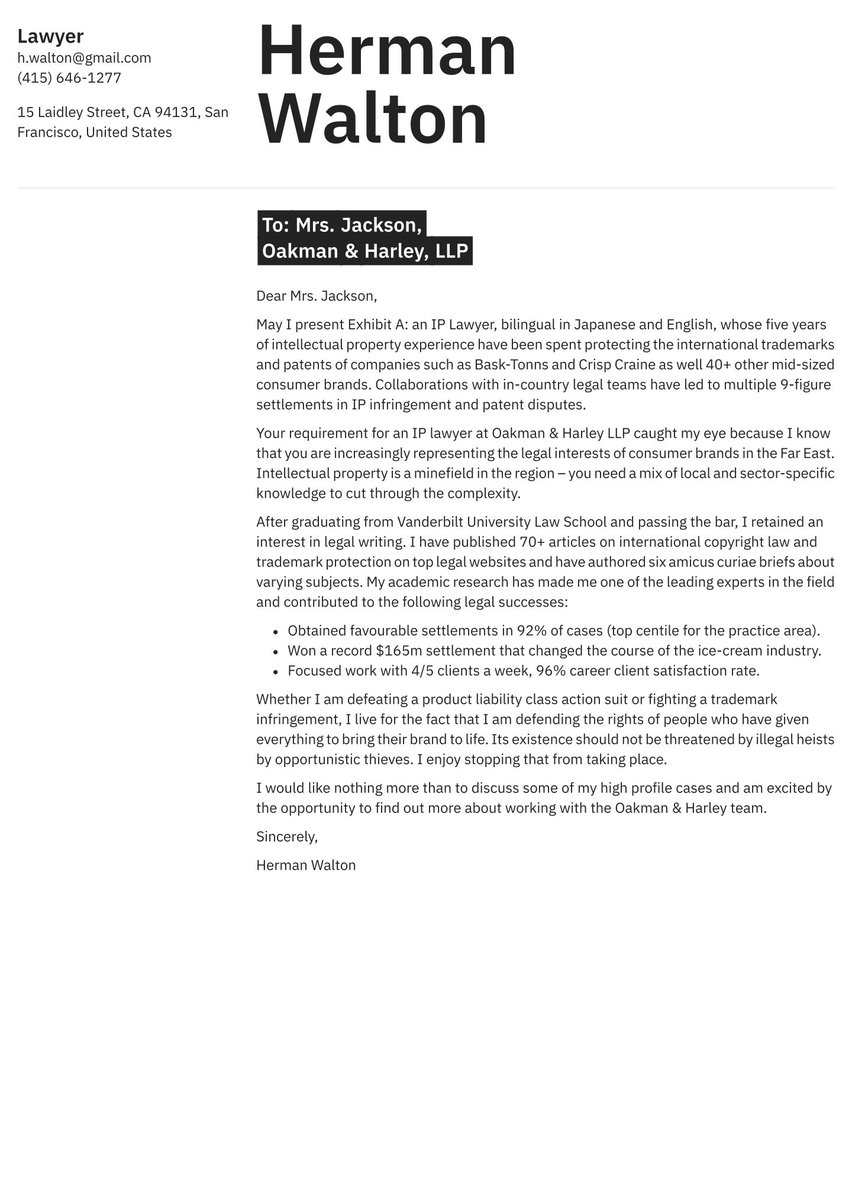Marketing coordinators fulfil a crucial role in the promotion and sale of any product or service — working across teams to support an overall effort to generate sales. They should be proficient at persuading people to buy a product or service. When they are the product within a job search, it should therefore be second nature to write a persuasive marketing coordinator cover letter.
For a marketing coordinator, or just about any other occupation, a cover letter is an essential companion to a resume.
Surveys of hiring managers have found that the failure to include a cover letter with a resume is one of the leading reasons job applications are rejected. You don’t want to take this chance.
It’s a fact that cover letters and resumes usually address some of the same topics, including work history and education. But while a resume is an impersonal document that isn’t addressed to anyone, a cover letter is a way of establishing a personal relationship with a hiring manager.
It’s the equivalent of knocking on a recruiter’s door, introducing yourself, shaking hands and making a personal pitch for your candidacy. It’s more personal, more memorable and more likely to receive a positive response.
This guide will discuss:
- Why a cover letter is crucial for a marketing coordinator
- How to structure a marketing coordinator cover letter
- Tips to writing a persuasive cover letter
- Common mistakes to avoid.
A cover letter also gives you a unique showcase for your personality, passion, likeability and perhaps your sense of humor. The only good reason to send a resume without a cover letter is if an employer asks you to send a resume only — which occasionally happens, but not very often.
Where marketing managers work
According to the U.S. Bureau of Labor Statistics, these are the major sectors that employ advertising, promotions and marketing managers:
- Advertising, public relations and related services 43%
- Self-employed workers 11%
- Information 10%
- Management of companies and enterprises 7%
- Wholesale trade 4%
Source: https://www.bls.gov/ooh/management/advertising-promotions-and-marketing-managers.htm#tab-3
Best format for a marketing coordinator cover letter
Make your marketing coordinator cover letter one page only, a maximum of 400 words, and uses a consistent and logical structure. Your cover letter should contain the following elements, in this order:
- Cover letter header
- Cover letter greeting
- Introduction
- Letter body
- Cover letter conclusion and call to action
- Sign-off.
Now let’s talk about how to write each of these.
Here are a few links to related cover letter examples and guides in the field of marketing:
- Digital Marketing cover letter sample
- Marketing Manager cover letter sample
- Marketing cover letter sample
- Social Media Manager cover letter sample
- Writer cover letter sample
- Event Coordinator cover letter sample
- Public Relations cover letter sample
- Event Manager cover letter sample
- Marketing Assistant cover letter sample
- Brand Ambassador cover letter sample
- Copywriter cover letter sample
Cover letter header
The cover letter header is the easiest part to write and the most challenging to design. Start with your name, occupation, phone number and email. You may also choose to add your LinkedIn page or a personal website, if you have one that’s focused on your professional achievements.
You do not need to include your full home address as there are potential data protection issues. You can share this at the later offer stage (you will get there eventually). Also, the inside address of the employer is not required these days - the cover letter will not be sent via email, after all.
In addition to providing your contact info, the cover letter header serves an important design function, which is making your letter look better at a glance. The header typically uses distinctive typography, sometimes a color element and an appropriate use of white space. It makes your letter look both more professional and more pleasing to the eye.
What does a good cover letter header look like? Go to resume.io’s free cover letter templates and you can see many examples. If you see one you like, simply click on it to start the process of replacing the existing text with your own.
Make your resume and cover letter match
Use the same fonts, formatting styles and colors in your resume and cover letter so that they have a matching look, like a teacup and saucer designed to go together.
A recruiter should be able to hold up your resume and cover letter side by side at arm’s length and see immediately that they’re from the same person. Using matching styles in your resume and cover letter demonstrates that you prepared the two to be sent together. It gives you a “visual brand” and shows that you pay attention to detail, and you understand the importance of coherent design.
Cover letter greeting and introduction
Always strive to address your cover letter greeting to a specific person: “Dear Mr. Garcia,” “Dear Ms. Robinson,” etc. Use last names unless you happen to know the person you’re writing to, in which case a first name may be fine.
You can never go wrong using the word “Dear,” which is the traditional and time-honored salutation used in a business letter. Some cover letter writers use variations like “Greetings Mr. Garcia,” which may also be acceptable, you should consider how formal or informal the communication style of your employer (profession/industry) is before making a decision.
The reasons for using the actual hiring manager’s name are numerous. People like to see their own names in writing, so there’s a psychological advantage in addressing a recruiter by name. Also, it shows professionalism, attention to detail and a focus on the company you’re targeting if you’ve gone to the trouble of finding out who processes job applications at this company.
Job listings often do not mention the name of the hiring manager, so sometimes it takes a little legwork to find out. If you can’t find this information online, it’s not a bad idea to make a phone call to the company to inquire.
The first paragraph that serves as your cover letter introduction is in many ways the most important. If you don’t hook the fish in the first place, you won’t have to worry about reeling it into the boat, because that fish got away.
Your introduction should clarify the type of job you’re looking for, while also providing a compelling preview of why you would be an excellent candidate. Use strong, compelling language — never lazy, clichéd or “fluffy” — to get recruiters’ attention from the beginning.
If you have a lot of experience as a marketing coordinator, that’s an excellent opener: “Having served as a marketing coordinator for eight years, supporting all aspects of the marketing efforts at two large companies in New York, I …”
Other examples of good introductions can be found at resume.io’s examples for a marketing manager or an event coordinator. Here’s an example of a marketing coordinator cover letter intro:
Dear Ms. Parker,
My social media marketing experience has grown as I have taken my employers onto new platforms, increasing followers from 25,000 to 195,000 and increasing engagements on posts by 1500%
Cover letter middle part (body)
If the recruiter is still reading after your introduction, consider that a win. Now, in the two or three paragraphs that make up the body of your cover letter, you need to deliver the meat and potatoes.
Again, in all occupations experience is key, so if you have impressive experience in this field, lead with that. Don’t just mention the companies you’ve worked for, but stress your specific achievements, accomplishments and milestones on the job.
Be specific, using facts and figures wherever possible — dollar figures, percent growth, number of clients, etc. Try to include at least one anecdote, a short little story, illustrating a difficult challenge you once faced, the action you took to address it, and the satisfactory outcome you achieved.
You could talk about some of the following in the middle part:
- Conducting market research
- Identifying promising marketing strategies
- Brainstorming new marketing tactics
- Communicating research results to team members
- Maintaining client/customer databases
- Contacting vendors
- Preparing marketing materials
- Organizing trade show displays
- Creating unified strategies that make a company better than the sum of its parts.
If you have a college degree in a relevant field, you can also mention that in the cover letter body, in addition to any certifications you may hold.
Also, it’s always a good idea to mention the name of the company you’re writing to, and to talk about how you could help that company with its needs. The more you know about this company the better, but even if your intel is thin, simply mentioning the company’s name shows that you’re not just mailing out a mass-produced cover letter to 100 different employers.
Which brings us to an important point: You can’t just send the exact same cover letter to all potential employers. Sure, there may be some boilerplate language in all your cover letters that doesn’t need to be changed, but the more you tailor each letter to each employer, the better your chances of landing an interview.
Here’s an example of well-written cover letter body for a marketing coordinator:
When you focus on the right marketing campaigns and work on employee advocacy, new client acquisition from socials becomes a torrent rather than a drip. Annual (directly attributable) new business came in at the value of $1.4m. Targeted B2B marketing can do that.
I am used to working with talented marketing managers, making sure that the basics are done right. I am an eagle-eyed content editor and enjoy the creativity of picking the right images. My analytical brain pores over the stats to optimize activity. I enjoy motivating others and know just how many people it takes to keep the marketing machine running. I am proficient at listening to rough ideas and interpreting how to execute. My most successful project was a guerrilla PR campaign that resulted in a 28% sales uplift.
You have to offer cutting edge advice to your clients, and I am not afraid of taking the risks and absorbing the learning that this requires. My written skills are well honed, and my articles and blogs are always within the top centiles of performance. I know how to touch others with my words.
How to end a marketing coordinator cover letter (conclusion & sign-off)
By the time you reach the cover letter conclusion (the last paragraph of your cover letter), you should have already presented your most compelling arguments for why you would be a good hire. Now it’s time for a wrap-up that includes some kind of call to action, suggesting to your correspondent that s/he should do something as a result of your letter, and not just lay it aside and forget about it.
The most basic call to action would be a statement saying that you look forward to a reply. You might also suggest that you would be delighted to be invited for an interview, in person or remotely, or just to follow up with an informal phone call.
If you want to create an even greater sense of urgency, you might inquire whether you could call the hiring manager in a week to follow up. You want to avoid being too pushy, but at the same time, if hiring managers know that you plan on actually calling them, they’ll see you’re really serious about this job. And that just might prompt them to send you a response proposing an appropriate way to follow up.
In terms of the sign-off phrase, "sincerely" is an appropriate closing salutation. Signing by hand is obviously not required on an electronic application, although you may wish to attach a digital signature (this risks not being parsed by the ATS, so be careful here).
Here’s an example of a winning conclusion to a marketing coordinator cover letter:
I am excited by your client roster and already know many of the marketeers from my time on the conference circuit. I would love the opportunity of an interview to discuss how I might be able to help you grow further.
Sincerely,
Felicity Vennwith
How to write a persuasive cover letter
Were you ever targeted for a sales pitch for a product that you would never buy in a million years?
Perhaps the main error in any marketing campaign is a total lack of awareness of what the target customer really wants. And this is a primary consideration in writing a marketing coordinator cover letter.
Pop quiz: Are hiring managers more focused on your wants and needs, or on theirs? Ding, you’re right! Hiring managers are not looking for marketing coordinators who need or deserve a job. They’re looking for marketing coordinators who will make their companies better, stronger, more efficient and more profitable. They’re looking for marketing coordinators who will earn the company more money than they cost.
So in writing a marketing coordinator cover letter, you need to think like an expert in, yes, marketing. You need to focus on the customer’s needs, not yours, or you will never sell anything.
If you have a dog, does your dog get most excited when you’re enjoying a thrilling book in bed, or when you’re offering the dog a tasty treat? We all have our own self-interest, and no interest is greater.
Try to put yourself in the shoes of the hiring manager you’re writing to. Is your cover letter focused on “me, me, me,” or on the interests of the company? Yes, you have to blow your own horn and promote yourself, but you also have to make a persuasive pitch that addresses the customer’s concerns more than yours.
The tone of your cover letter is very important — if you think you’re God’s gift to marketing coordinators, and you expect and demand a job, that will always be a turnoff. Like the schnauzer at the foot of your bed hoping for a dog biscuit, hiring managers actually care about their own needs more than yours.
So you need to be very conscientious about the voice, tone and message of your cover letter. One way of saying this is: Don’t write the cover letter that YOU want to write. Write the cover letter the hiring manager would like to receive.
Avoiding basic mistakes in a marketing coordinator cover letter
Here are some mistakes you can’t afford to make in a marketing coordinator cover letter:
- Typos and other errors: How many typos, misspellings or grammatical errors are acceptable in a one-page letter for a marketing coordinator cover letter? Exactly zero. If you’re not an expert in writing flawless prose, find an editor to review and revise your letter.
- Clichés and “fluff”: Clichés are phrases that hiring managers have read a thousand before, and “fluff” is fancy language that basically says nothing. In your cover letter, strive for fresh, original language that nobody has ever read before.
- One letter for all: Mass-produced cover letters that are not customized to individual employers are a loud signal to employers that you’re just looking for any job that’s out there, and you’re not really interested in this job.
- Irrelevant info: If you’re interested in baking, gardening and badminton, nobody really cares. Use the short space you have to highlight interests and skills that are relevant to the job you’re seeking.
Key takeaways
Marketing coordinator roles are a great way to get onto the marketing career ladder. According to Glassdoor.com, a leading source of salary info for various occupations, marketing coordinators in the United States earn an average base pay of $45,827 a year. A similar site, Payscale.com, puts the number at $44,906. It is well worth writing a compelling cover letter.
- Marketing coordinators are sales professionals who play a crucial role in synchronizing the efforts of the sales, marketing and PR departments at any company with something to sell.
- Cover letters are an essential part of a job application for a marketing coordinator because they provide a unique opportunity to showcase your personality, passion and enthusiasm for doing your job.
- Follow the correct structure for writing a cover letter to make sure you’ve included everything you should, and nothing you shouldn’t.
- Unlike a badly targeted marketing campaign, a marketing coordinator cover letter should speak directly to the needs of the target — your future employer.
- At resume.io, we provide extensive guidance on how to write a cover letter, in addition to cover letter examples and templates and occupation-specific advice on any part of the job-application process.
Now get out there and find the job that’s right for you!


